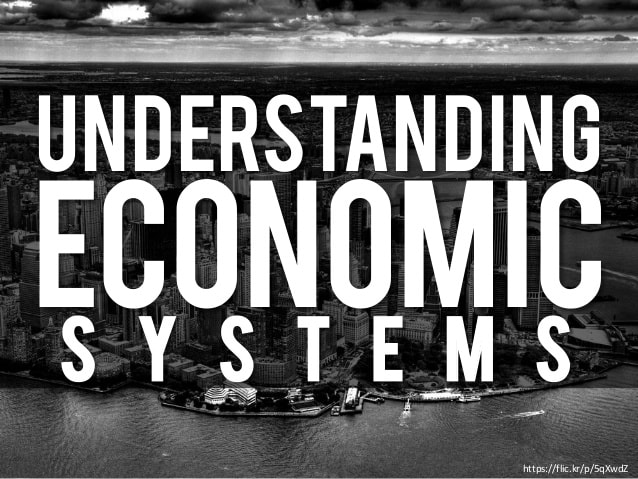GSESS8E3 | Personal Money Monagement
Explain the principles of effective personal money management.
a. Explain that income is the starting point for personal financial management.
b. Describe the reasons for and the benefits of a household budget.
c. Describe the reasons for and the benefits of savings.
d. Describe the uses of debt and associated risks.
b. Describe the reasons for and the benefits of a household budget.
c. Describe the reasons for and the benefits of savings.
d. Describe the uses of debt and associated risks.
Video LessonsYouTube Playlist Lesson & Standard Lesson Reviews
|
|
|
VIDEOS IN THE LESSON
|
E3.a - Income as a Starting Point for Money Management
|
|
E3.b - Reasons & Benefits for a Household Budget
|
E3.c - Reasons & Benefits for Savings
|
E3.d - Uses of Debt & Associated Risks
The Story | GeorgiaStandards.org
GSESS8E3.a
Developing a personal financial management plan is unique to every individual. Spending and saving goals should be considered in making a realistic, workable plan. Perhaps the most important factor when first developing a financial plan should be the individual’s income. Income is the money received (coming in) for labor or services, the sale of property or goods, from financial investments, or other services. Knowing monthly income allows the individual to know how much money is available to take care of expenditures (to spend). This allows the individual to maintain control of his money and helps to achieve long- and short-term financial goals.
GSESS8E3.b
Individuals should create household budgets and start tracking expenses as soon as they begin their first fulltime job. There are many reasons for creating a household budget. Creating a budget for spending and saving helps to monitor financial resources so that an individual does not become over-extended. A budget offers an organized way to establish short and long-term savings opportunities. By carefully monitoring the budget, an individual can adjust expenses and savings if there is a change in income or expenditures. A budget helps to compare annual income with annual expenses in order to meet financial goals.
The benefits of creating a household budget are diverse. An individual gains increased financial freedom when in control of personal finances. A budget encourages an individual to save so that long-term financial goals can be achieved. Budgets help adapt to changes in financial circumstances, whether it be an emergency, loss of a job, or extended sickness. Budget analysis allows an individual to understand where money is spent and to identify unnecessary expenditures.
GSESS8E3.c
Savings is the portion of income not spent on current expenditures. Because a person does not know what will happen in the future, saving money should be a priority to make provisions for unexpected events or emergencies that might occur. Reasons for saving include:
Without savings, unexpected events can result in large financial burdens.
Benefits of saving money are diverse. Savings can provide a “financial backstop,” encourage feelings of security, and peace of mind. Benefits of saving include:
GSESS8E3.d
Debt is an amount of money borrowed by one party from another party. While we typically think of debt as a negative consequence of poor planning or circumstances beyond one’s control, debt can provide positive opportunities for individuals. Acceptable uses of debt include purchasing a home (mortgage), advancing education, starting or expanding a business, and fulfilling dreams. However, fulfilling a dream is not a license to debt-finance lavish spending without regard for the future. Debt allows for the delayed payment for goods or opportunities and usually comes with a cost, known as interest (an additional amount you pay to use borrowed money). For example, if you finance a vehicle for $20,000 with an interest rate of 3% for a 60 month period, the entire loan total would be $21,562. The interest would amount to $1,562.
Associated risks of debt include having to make payments on a loan even when you are not financially able to make the payment. Credit ratings can be adversely affected because as you borrow more, the risk to the lender increases, so you'll pay a higher interest rate on subsequent loans. Bankruptcy (a legal proceeding involving a person or business that is unable to repay outstanding debts) is a very real concern with uncontrolled debt. In certain occupations, including the military, industrial, and medical research, prolonged excessive debt will cause negative impacts that can lead to dismissal from a job. Unchecked debt can lead to stress and other health related issues, including stroke, hypertension, and mental health issues.
Identifying areas of debt is important so that it can be managed before it becomes detrimental to financial security.
Developing a personal financial management plan is unique to every individual. Spending and saving goals should be considered in making a realistic, workable plan. Perhaps the most important factor when first developing a financial plan should be the individual’s income. Income is the money received (coming in) for labor or services, the sale of property or goods, from financial investments, or other services. Knowing monthly income allows the individual to know how much money is available to take care of expenditures (to spend). This allows the individual to maintain control of his money and helps to achieve long- and short-term financial goals.
GSESS8E3.b
Individuals should create household budgets and start tracking expenses as soon as they begin their first fulltime job. There are many reasons for creating a household budget. Creating a budget for spending and saving helps to monitor financial resources so that an individual does not become over-extended. A budget offers an organized way to establish short and long-term savings opportunities. By carefully monitoring the budget, an individual can adjust expenses and savings if there is a change in income or expenditures. A budget helps to compare annual income with annual expenses in order to meet financial goals.
The benefits of creating a household budget are diverse. An individual gains increased financial freedom when in control of personal finances. A budget encourages an individual to save so that long-term financial goals can be achieved. Budgets help adapt to changes in financial circumstances, whether it be an emergency, loss of a job, or extended sickness. Budget analysis allows an individual to understand where money is spent and to identify unnecessary expenditures.
GSESS8E3.c
Savings is the portion of income not spent on current expenditures. Because a person does not know what will happen in the future, saving money should be a priority to make provisions for unexpected events or emergencies that might occur. Reasons for saving include:
- Providing a cushion for emergencies. The sudden loss of income, unexpected medical expenses, or the breakdown of a necessary appliance can strain a budget and savings can help avoid going into debt.
- Planning for retirement. Adequate savings and/or investments often take the place of the income that you will no longer get from your job, or when you retire.
- Longer life expectancy. As a result of advances in geriatric medicine and public health, people are living longer and need additional income on which to live.
- Volatility of Social Security. Social Security should not be considered the primary source of retirement income and, therefore, savings can be used to supplement income.
- Education. Costs for private and public education rise every year and savings can provide a means to meet the increased financial demands.
- Making large, expensive purchases. Savings can assist in the purchase of items that are too costly to purchase with monthly income. Buying major appliances, purchasing an automobile, or paying for a vacation can all be paid for by saving a portion of income.
Without savings, unexpected events can result in large financial burdens.
Benefits of saving money are diverse. Savings can provide a “financial backstop,” encourage feelings of security, and peace of mind. Benefits of saving include:
- Provides “seed money”. Allows for higher-yielding investments in stocks, bonds, and mutual funds.
- Encourages a sense of control over life events. Saving money to live a better, more fulfilling life can be a great motivator.
- Lowers the stress level. Financial security decreases health concerns.
- A positive example for children. Children learn strong lessons when they observe parents saving for the future.
- Wealth building. Being able to accumulate wealth provides the opportunity to multiply wealth through investments.
- The ability to pursue opportunities. Whether it is a personal dream, family travel, or a job opportunity in a foreign country, financial success through saving can make opportunities a reality.
GSESS8E3.d
Debt is an amount of money borrowed by one party from another party. While we typically think of debt as a negative consequence of poor planning or circumstances beyond one’s control, debt can provide positive opportunities for individuals. Acceptable uses of debt include purchasing a home (mortgage), advancing education, starting or expanding a business, and fulfilling dreams. However, fulfilling a dream is not a license to debt-finance lavish spending without regard for the future. Debt allows for the delayed payment for goods or opportunities and usually comes with a cost, known as interest (an additional amount you pay to use borrowed money). For example, if you finance a vehicle for $20,000 with an interest rate of 3% for a 60 month period, the entire loan total would be $21,562. The interest would amount to $1,562.
Associated risks of debt include having to make payments on a loan even when you are not financially able to make the payment. Credit ratings can be adversely affected because as you borrow more, the risk to the lender increases, so you'll pay a higher interest rate on subsequent loans. Bankruptcy (a legal proceeding involving a person or business that is unable to repay outstanding debts) is a very real concern with uncontrolled debt. In certain occupations, including the military, industrial, and medical research, prolonged excessive debt will cause negative impacts that can lead to dismissal from a job. Unchecked debt can lead to stress and other health related issues, including stroke, hypertension, and mental health issues.
Identifying areas of debt is important so that it can be managed before it becomes detrimental to financial security.
Extra
Nothing yet. We shall see...



